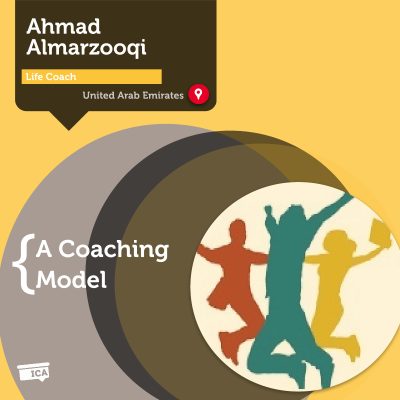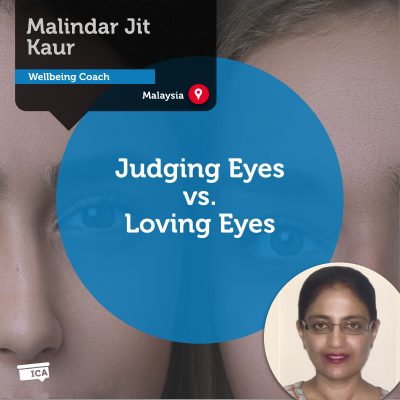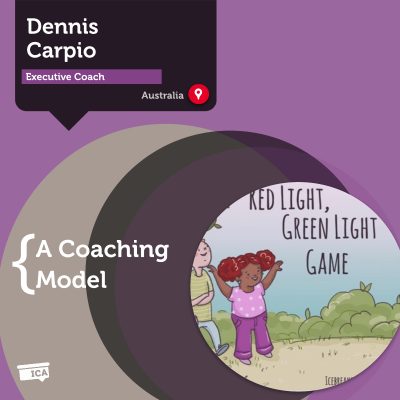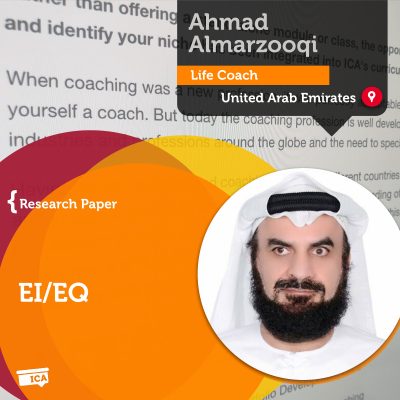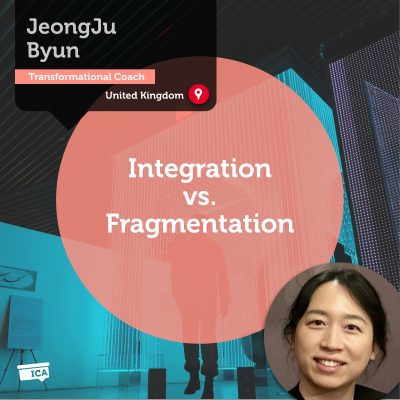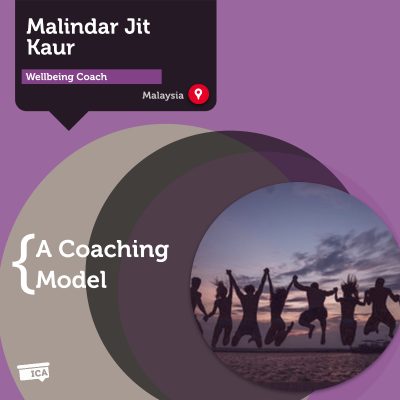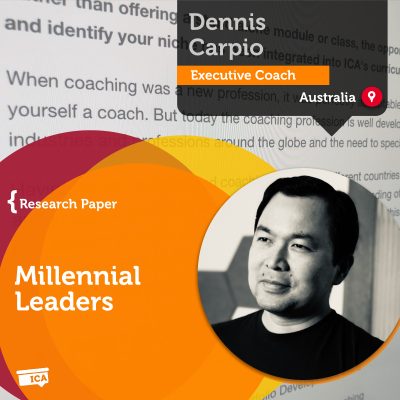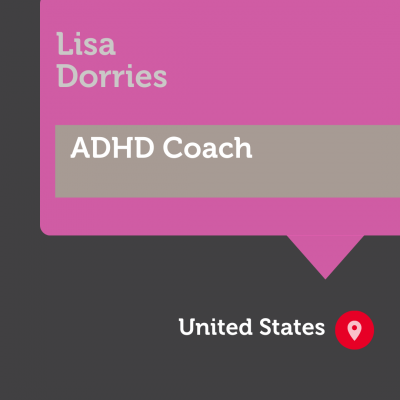Tina is an ICA Graduate, a Professional Certified Coach (PCC), facilitator, and trainer. She has over 25 years of experience across many sectors and is particularly passionate about supporting family-centered parents to make heart-centered choices for their children, for themselves, and for the planet. Continue…
REACH
A Coaching Model By Ahmad Almarzooqi
Life Coach, UNITED ARAB EMIRATES
The REACH coaching model is a visual depiction of the philosophy and concepts that guide who I am as a coach and how I work with my clients. Each coach’s contribution to coaching is unique; it is a blend of who they are as people, their backgrounds, talents, expertise, and experience. Coaching entails a conversation between a coach and a client in which the coach assists the client in achieving a goal, unlocking the client’s own potential to maximize performance, and partnering and cooperating with the client to make the necessary changes.
Implementing Coaching into Medical Education
A Research Paper By Ute Hauck
Career Coach, AUSTRALIA
Coaching in medicine has grown in popularity in recent years, and it now includes everyone from medical students to doctors and patients. Coaching is a great tool for improving academic performance and supporting students well-being during their studies. Physicians can also benefit from coaching to help them deal with personal and professional issues, as well as to prevent burnout. Patients can receive health coaching to help them achieve their health-related goals. The importance of “Academic Coaching” for undergraduate and postgraduate medical students is the topic of this research piece. “Unlocking a person’s potential to optimize their performance” is the goal of incorporating coaching into medical education.
Judging Eyes vs. Loving Eyes
A Coaching Power Tool By Malindar Jit Kaur
Wellbeing Coach, MALAYSIA
In a coaching session, the coach’s aim is critical. It is crucial for us to work through our own judgmental eyes and to train ourselves to look with loving eyes as mentors. Only then, as coaches, can we give our clients unconditional positive regard by establishing a nonjudgmental atmosphere. The coach’s preparation prior to the coaching session assists the coach in grounding, connecting, and setting the correct intention for the coaching session. There are a number of methods that coaches can use to help clients choose between a Judging Eyes vs. Loving Eyes.
Red Light, Green Light
A Coaching Model By Dennis Carpio,
Executive Coach, AUSTRALIA
Help your clients move forward with their questions or concerns using the Red Light Green Light Coaching Model. The two-part framework will assist your customers in gaining clarity about their predicament or problem (the Red Light) as well as fresh information about themselves, and their situation in order to move forward (the Green Light). The model is based on the South Korean children’s game “Red Light, Green Light,” which became extremely popular in 2021 because of Netflix’s big hit show “Squid Game” (Dong-Hyuk, 2021). This model will not include any of the show’s violence, but it will be based on the first episode of the show, “Red Light, Green Light.”
The Use of EI/EQ in a Personal Positive Relationship With Coaching Practice
A Research Paper By Ahmad Almarzooqi
Life Coach, UNITED ARAB EMIRATES
Emotional Intelligence (EI), sometimes known as Emotional Quotient (EQ), is a concept created by Daniel Goleman in the mid-1990s. Later, there were multiple stages of growth and research involving various schools of thought. (The assessment of an individual’s capacity to control their emotions, as well as the emotions of others, both one to one and in groups) is the greatest definition I found for EI. EI/EQ interpersonal skills in interpersonal relationships can be developed by understanding how to communicate with others and by regularly practicing and reviewing these competencies.
Integration vs. Fragmentation
A Coaching Power Tool By JeongJu Byun
Transformational Coach, UNITED KINGDOM
Integration vs. Fragmentation is a power tool that helps clients integrate their own reality into their desired outcomes. Kintsugi is a Japanese ceramic restoration technique designed to promote contact with reality and acceptance of imperfections. It tells you that reassembling broken parts will make you stronger and better than before. According to its concept, we may have a higher probability of closer integration after learning about fragmentation across society.
JOY – Journey. Ocean. Yee-ha!
A Coaching Model By Malindar Jit Kaur
Wellbeing Coach, MALAYSIA
The JOY coaching model is a holistic inwardly journey that will help you REMEMBER that you are the “Buddha,” the Authentic Self, or the Joyful Self, and thereby remove the layers of ignorant dust that have gathered through time. Every difficulty has a gem concealed in it. The JOY Coaching Model assists clients in locating that diamond, celebrating the present moment as a source of joy in all aspects of life, mining their gifts, refining their talents, revealing their eminence, and making a difference in the world by being their Authentic joyous self.
How to Effectively Coach Millennial Leaders
A Research Paper By Dennis Carpio
Executive Coach, AUSTRALIA
This paper focuses on millennial leaders or people who have led a group of people to accomplish a goal or are in charge of an organization. We’ll discuss characteristics that distinguish them from other generational cohorts or groupings. Why millennials specifically? In the next five years, millennials will make up a significant portion of the workforce. A one-size-fits-all approach to coaching leaders from various generational groups is ineffective. Knowing the generational differences in ideas and actions could make the difference between outstanding and poor coaching outcomes.
ADHD Coaching
A Research Paper By Lisa Dorries
ADHD Coach, UNITED STATES
The coaching techniques for adults with Attention Deficit Hyperactivity Disorder will be the main topic of this study (ADHD). The PAAC, the international body in charge of creating and upholding international standards of excellence for credentialing ADHD coaches and accrediting accredited ADHD coach training schools and programs, has granted accreditation to the ADD Coach Academy (ADDCA). There is only one ADHD coach training program fully accredited by the International Coach Federation, ADDCA. For clients to benefit the most from coaching, ADHD coaching stands out because it considers the fundamental issues with ADHD. Objectives frequently include developing practical abilities, focusing, and turning ideas into actions. What’s more, ADHD coaching aids clients in developing motivation so they can break out of ruts and advance toward their objectives.
- « Previous Page
- 1
- …
- 49
- 50
- 51
- 52
- 53
- …
- 365
- Next Page »

